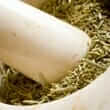Background
- Maca is a vegetable that has been cultivated as a root crop for at least 2,000 years. It can be found wild in Peru, Bolivia, Paraguay, and Argentina, but has primarily been cultivated in the highlands of the Peruvian Andes. Because of its ability to grow in harsh climates at high-altitude, maca is an important staple food for native populations in the Peruvian highlands. It is highly nutritious with about 11% protein content and can be baked, roasted, prepared as a porridge, and has been used for making a fermented drink.
- Traditionally, maca has also been used to relieve stress, as an aphrodisiac, and for fertility enhancement in both males and females. Recently, commercial maca products have gained popularity in areas outside of South America as dietary supplements, with claims of boosting energy, enhancing fertility, balancing hormones, acting as an aphrodisiac, and enhancing sexual performance. However, evidence to support these claims is weak.
- Natives of the central Andes do not use fresh maca. It is considered harmful. When maca is harvested, the roots are dried by exposing them to sunlight for 4-6 days. After they have been dried, they can be stored in cool, dark places for several years. For consumption, the dried roots are rehydrated by boiling them in water until they are soft. Maca is also referred to as Peruvian ginseng, although it is not closely related to ginseng.
References
- Bogani P, Simonini F, Iriti M, et al. Lepidium meyenii (Maca) does not exert direct androgenic activities. J Ethnopharmacol 4-6-2006;104(3):415-417.
View Abstract - Bustos-Obregon E, Yucra S, Gonzales GF. Lepidium meyenii (Maca) reduces spermatogenic damage induced by a single dose of malathion in mice. Asian J Androl 2005;7(1):71-76.
View Abstract - Chung F, Rubio J, Gonzales C, et al. Dose-response effects of Lepidium meyenii (Maca) aqueous extract on testicular function and weight of different organs in adult rats. J Ethnopharmacol. 4-8-2005;98(1-2):143-147.
View Abstract - Gonzales C, Rubio J, Gasco M, et al. Effect of short-term and long-term treatments with three ecotypes of Lepidium meyenii (MACA) on spermatogenesis in rats. J Ethnopharmacol 2-20-2006;103(3):448-454.
View Abstract - Gonzales GF, Miranda S, Nieto J, et al. Red maca (Lepidium meyenii) reduced prostate size in rats. Reprod.Biol Endocrinol 1-20-2005;3(1):5.
View Abstract - McCollom MM, Villinski JR, McPhail KL, et al. Analysis of macamides in samples of Maca (Lepidium meyenii) by HPLC-UV-MS/MS. Phytochem.Anal. 2005;16(6):463-469.
View Abstract - McKay D. Nutrients and botanicals for erectile dysfunction: examining the evidence. Altern Med Rev 2004;9(1):4-16.
View Abstract - Miller MJ, Ahmed S, Bobrowski P, et al. The chrondoprotective actions of a natural product are associated with the activation of IGF-1 production by human chondrocytes despite the presence of IL-1beta. BMC.Complement Altern Med 2006;6:13.
View Abstract - Rubio J, Caldas M, Davila S, et al. Effect of three different cultivars of Lepidium meyenii (Maca) on learning and depression in ovariectomized mice. BMC.Complement Altern Med 6-23-2006;6(1):23.
View Abstract - Rubio J, Riqueros, MI, Gasco M, et al. Lepidium meyenii (Maca) reversed the lead acetate induced-Damage on reproductive function in male rats. Food Chem Toxicol 2006;44(7):1114-1122.
View Abstract - Ruiz-Luna AC, Salazar S, Aspajo NJ, et al. Lepidium meyenii (Maca) increases litter size in normal adult female mice. Reprod.Biol Endocrinol 5-3-2005;3(1):16.
View Abstract - Valentova K, Buckiova D, Kren V, et al. The in vitro biological activity of Lepidium meyenii extracts. Cell Biol Toxicol 2006;22(2):91-99.
View Abstract - Valerio LG Jr, Gonzales GF. Toxicological aspects of the South American herbs cat's claw (Uncaria tomentosa) and Maca (Lepidium meyenii) : a critical synopsis. Toxicol.Rev 2005;24(1):11-35.
View Abstract - Zhang Y, Yu L, Ao M, et al. Effect of ethanol extract of Lepidium meyenii Walp. on osteoporosis in ovariectomized rat. J Ethnopharmacol 4-21-2006;105(1-2):274-279.
View Abstract - Zhao J, Muhammad I, Dunbar DC, et al. New alkamides from maca (Lepidium meyenii). J Agric.Food Chem. 2-9-2005;53(3):690-693.
View Abstract







